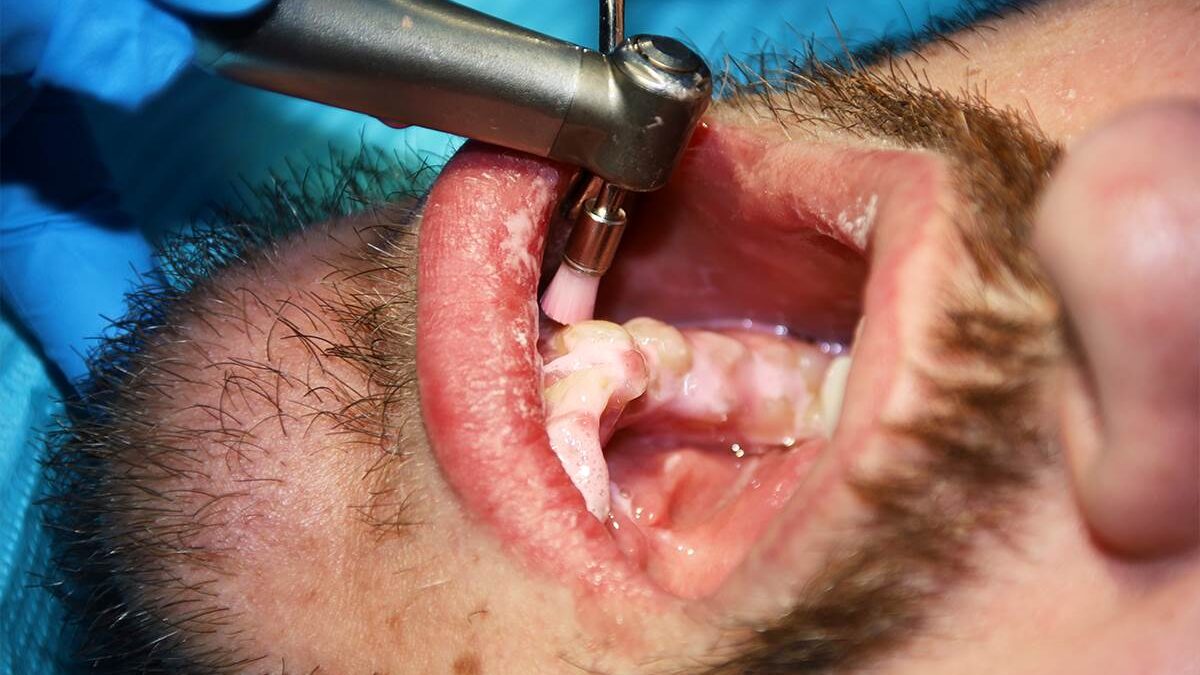Is Tooth Scaling Painful?

How Often Should You Go to the Dentist for Check ups?
March 20, 2025
Is It Good to Replace Amalgam Fillings?
March 27, 2025Tooth scaling, also called deep cleaning, removes plaque and tartar from the surface of the teeth and above the gum line. Dentists use this treatment to prevent cavities, gum disease, and bad breath. While the procedure cleans bacteria around the teeth, many patients worry about tooth scaling and root planing pain. Let’s see if this process is painful.
Table of Contents
ToggleIs Dental Scaling Necessary?
Yes, dental scaling is necessary for people with gum disease. Plaque and tartar create bacteria that inflame the gums. If you leave them untreated, this can lead to infections, bone loss, and even tooth loss. Since regular brushing and flossing can’t always remove hardened plaque beneath the gums, a general dentist Seattle, WA, clears out bacteria before the damage becomes severe.
Why Do You Need It?
- Removes hardened plaque and tartar
- Reduces gum inflammation and bleeding
- Stops gum disease from worsening
- Lowers the risk of tooth loss
- Improves overall oral health
Is Tooth Scale and Root Planing Painful?
Many patients worry about tooth scaling and root planing pain during and after the process. The scaling and root planing process involves cleaning below the gumline to remove plaque and tartar. This deep cleaning can cause discomfort because it reaches sensitive areas not usually touched during regular cleanings.
Tooth Scaling and Root Planing Pain Levels
Pain varies among individuals. Some feel mild discomfort, while others experience more noticeable pain. Here are some statistics about deep cleaning Seattle, WA:
- 28% reported faint-to-weak pain.
- 18% experienced weak-to-mild pain.
- 28% had mild-to-moderate pain.
- 8% felt moderate-to-strong pain.
- 8% reported strong-to-intense pain.
Factors Affecting Tooth Scaling and Root Planing Pain
Several factors can affect your level of pain and discomfort:
- Inflamed or sensitive gums may react more during the procedure.
- If you have more plaque and tartar buildup, it can lead to increased discomfort.
- Individual tolerance to pain varies widely.
- Nervousness can heighten the perception of pain.
Tooth Pain after Scaling
Tooth pain after scaling is common but typically short-lived:
- Mild pain often peaks between two to eight hours after treatment and lasts about six hours.
- You may have tooth sensitivity to hot or cold temperatures for a few days.
- Your gums might feel tender or swollen temporarily.
Managing Tooth Scaling and Root Planing Pain
To ease severe pain after scaling and root planing after the deep cleaning Kirkland, WA:
- Medications like ibuprofen can help alleviate pain.
- Gargling with warm salt water can soothe gums and reduce swelling.
- Eating soft foods can prevent irritation to sensitive areas.
- Keeping your mouth clean aids in faster healing.
What Happens During Scaling and Root Planing?
Understanding each step helps ease anxiety, and tooth scaling and root planing pain. Here’s what you can expect:
- Your dentist applies a local anesthetic to keep you comfortable.
- Dentists use special dental tools to remove plaque and tartar from above and below the gumline. Some people hear scraping sounds, but it’s painless.
- Your dentist smooths the tooth roots to help gums reattach and prevent bacteria from sticking in the future.
- Your dentist cleans the area, checks for missed spots, and provides aftercare instructions.
Aftercare Tips to Manage Tooth Pain after Scaling
Taking care of your gums after scaling speeds up healing and minimizes discomfort. Here are some tips recommended by general dentists Kirkland, WA:
- Wait until the numbness fades before eating to avoid biting your cheek or tongue.
- Stick to soft foods. Examples include yogurt, soup, and mashed potatoes for a day or two.
- Avoid spicy, acidic, or extremely hot and cold foods to prevent irritation.
- Rinse your mouth. You better use warm salt water to reduce swelling and discomfort.
- Use a toothbrush with soft bristles and brush gently to avoid irritating sensitive gums.
- Take over-the-counter pain relievers if needed.
- Avoid smoking and alcohol since they slow healing and increase infection risk.
Root Planing and Tooth Scaling Pain Relief in Kirkland, Near Seattle, Washington
At Kirkland Dental Excellence, we understand that dental treatments are intimidating. Our team provides gentle, expert care to ensure your comfort during tooth scaling and root planing. We use advanced techniques and personalized aftercare plans to minimize tooth scaling pain and speed up recovery. If you need deep cleaning or want to prevent gum disease, call us or book an appointment online.
Tooth Scaling and Root Planing Pain: Let’s Recap
You might feel tooth scaling and root planing pain, but it’s a necessary step toward healthier gums. The procedure prevents serious dental issues and improves oral health in the long run. Keep in mind that your pain is manageable, and proper aftercare makes recovery smooth.
FAQs
Most people feel little to no pain during the procedure due to numbing. Mild soreness afterward is normal but fades quickly.
It helps with gum-related pain by removing bacteria, but if the tooth itself is infected, other treatments may be needed.
Pain varies. Some feel slight discomfort, while others have sensitivity for a few days. Pain relievers help manage it.
Discomfort usually lasts a few days, but sensitivity may linger for a week. Proper aftercare helps speed up recovery.
Yes, dentists typically use a local anesthetic to ensure a pain-free experience.
It depends on your oral health. Some people need it once a year, while those with advanced gum disease may require it more frequently.




